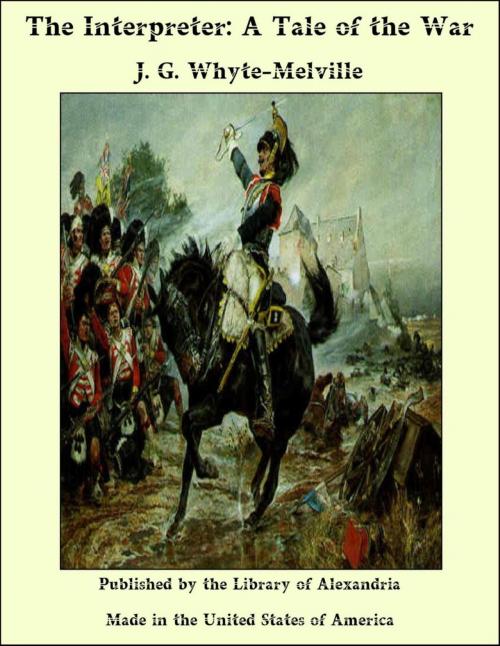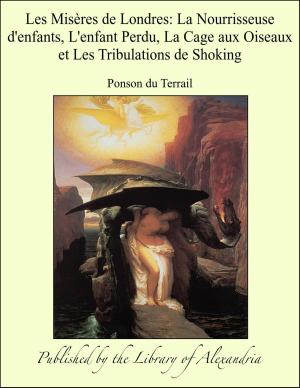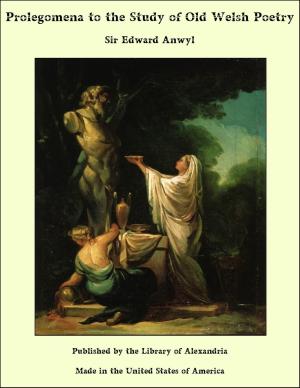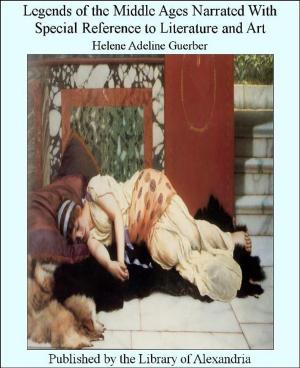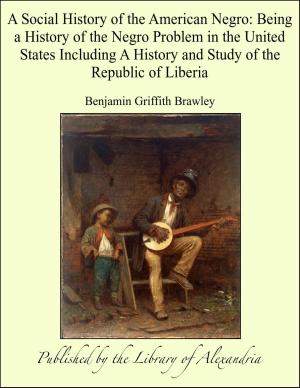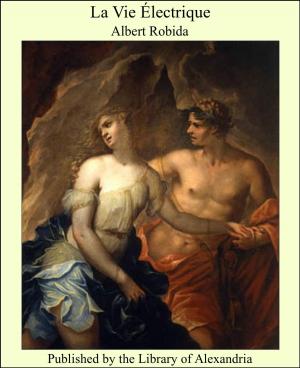The Interpreter: A Tale of the War
Nonfiction, Religion & Spirituality, New Age, History, Fiction & Literature| Author: | J. G. Whyte-Melville | ISBN: | 9781465576118 |
| Publisher: | Library of Alexandria | Publication: | March 8, 2015 |
| Imprint: | Language: | English |
| Author: | J. G. Whyte-Melville |
| ISBN: | 9781465576118 |
| Publisher: | Library of Alexandria |
| Publication: | March 8, 2015 |
| Imprint: | |
| Language: | English |
Not one of my keys will fit it: the old desk has been laid aside for years, and is covered with dust and rust. We do not make such strong boxes nowadays, for brass hinges and secret drawers have given place to flimsy morocco and russian leather; so we clap a Bramah lock, that Bramah himself cannot pick, on a black bag that the veriest bungler can rip open in five seconds with a penknife, and entrust our notes, bank and otherwise, our valuables, and our secrets, to this faithless repository with a confidence that deserves to be respected. But in the days when George the Third was king, our substantial ancestors rejoiced in more substantial workmanship: so the old desk that I cannot succeed in unlocking, is of shining rosewood, clamped with brass, and I shall spoil it sadly with the mallet and the chisel. What a medley it holds! Thank Heaven I am no speculative philosopher, or I might moralise for hours over its contents. First, out flies a withered leaf of geranium. It must have been dearly prized once, or it would never have been here; maybe it represented the hopes, the wealth, the all-in-all of two aching hearts: and they are dust and ashes now. To think that the flower should have outlasted them! the symbol less perishable than the faith! Then I come to a piece of much-begrimed and yellow paper, carefully folded, and indorsed with a date,--a receipt for an embrocation warranted specific in all cases of bruises, sprains, or lumbago; next a gold pencil-case, with a head of Socrates for a seal; lastly, much of that substance which is generated in all waste places, and which the vulgar call "flue." How it comes there puzzles equally the naturalist and the philosopher; but you shall find it in empty corners, empty drawers, empty pockets, nay, we believe in its existence in the empty heads of our fellow-creatures.
Not one of my keys will fit it: the old desk has been laid aside for years, and is covered with dust and rust. We do not make such strong boxes nowadays, for brass hinges and secret drawers have given place to flimsy morocco and russian leather; so we clap a Bramah lock, that Bramah himself cannot pick, on a black bag that the veriest bungler can rip open in five seconds with a penknife, and entrust our notes, bank and otherwise, our valuables, and our secrets, to this faithless repository with a confidence that deserves to be respected. But in the days when George the Third was king, our substantial ancestors rejoiced in more substantial workmanship: so the old desk that I cannot succeed in unlocking, is of shining rosewood, clamped with brass, and I shall spoil it sadly with the mallet and the chisel. What a medley it holds! Thank Heaven I am no speculative philosopher, or I might moralise for hours over its contents. First, out flies a withered leaf of geranium. It must have been dearly prized once, or it would never have been here; maybe it represented the hopes, the wealth, the all-in-all of two aching hearts: and they are dust and ashes now. To think that the flower should have outlasted them! the symbol less perishable than the faith! Then I come to a piece of much-begrimed and yellow paper, carefully folded, and indorsed with a date,--a receipt for an embrocation warranted specific in all cases of bruises, sprains, or lumbago; next a gold pencil-case, with a head of Socrates for a seal; lastly, much of that substance which is generated in all waste places, and which the vulgar call "flue." How it comes there puzzles equally the naturalist and the philosopher; but you shall find it in empty corners, empty drawers, empty pockets, nay, we believe in its existence in the empty heads of our fellow-creatures.
